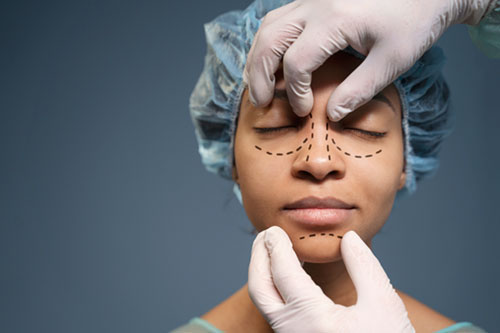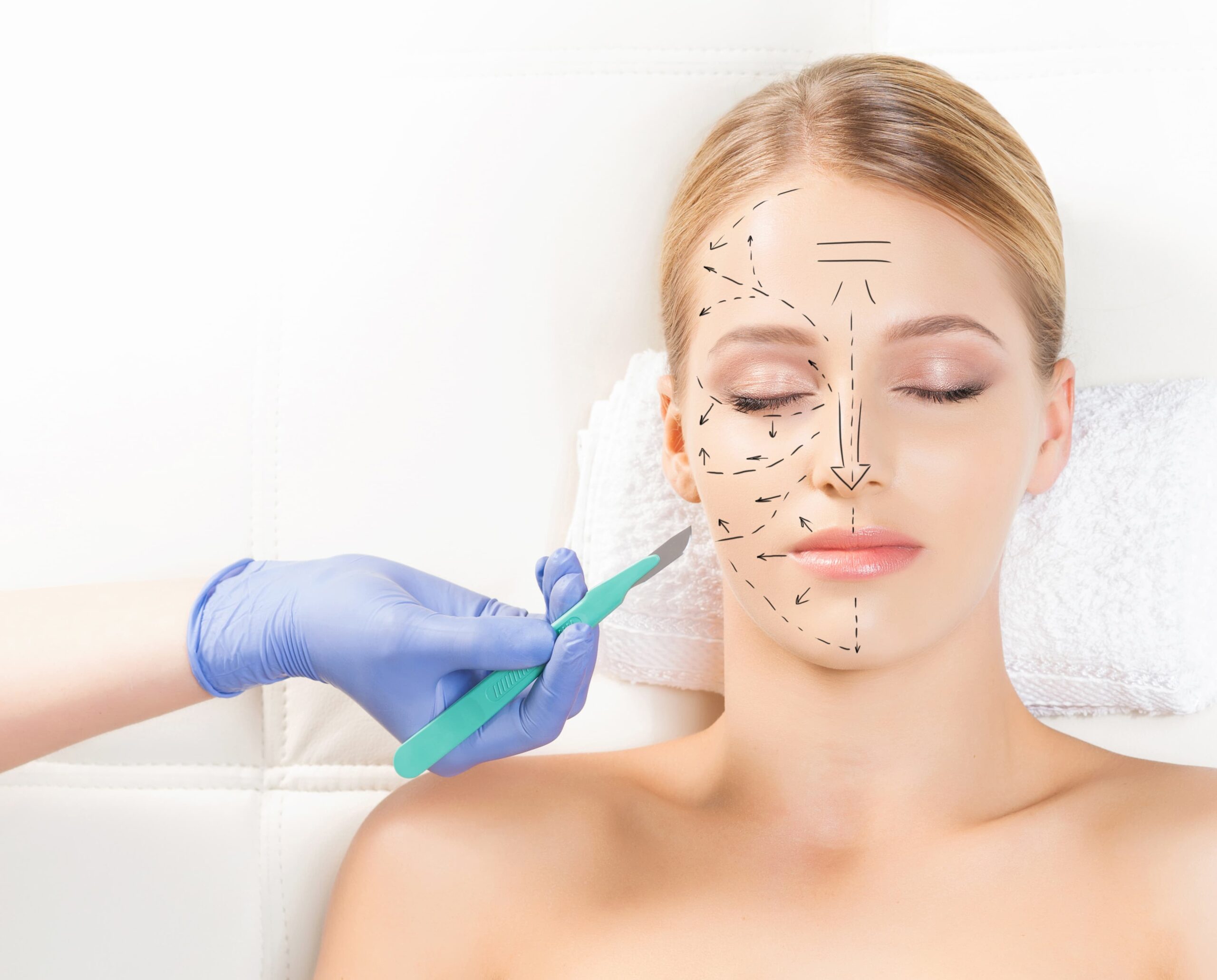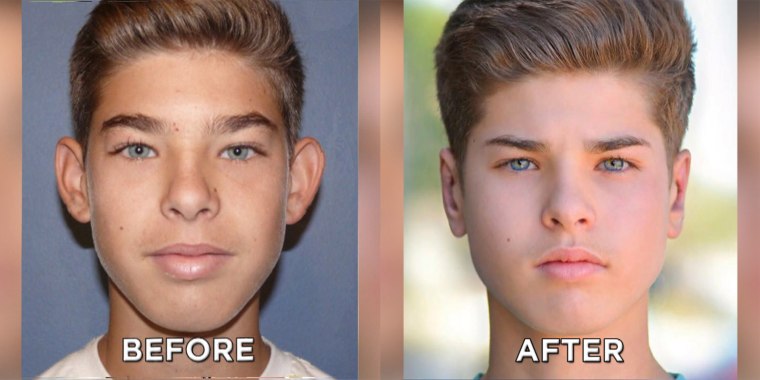Facelift Rancho Cucamonga: Smooth Wrinkles and Tighten Skin for a Youthful Look
Facelift Rancho Cucamonga: Smooth Wrinkles and Tighten Skin for a Youthful Look
Blog Article
Examining the Psychological and Social Aspects That Drive Individuals to Consider Plastic Surgery as a Way of Improvement
The decision to pursue cosmetic surgical treatment commonly expands past mere appearances, intertwining with psychological and social characteristics that merit complete exam. Aspects such as self-esteem, prevalent social charm criteria, and the pervasive impact of social media converge to form private inspirations for surgical enhancement.
The Role of Self-Esteem
Self-esteem substantially influences a person's decision to go after plastic surgery. People with reduced self-worth typically perceive themselves in an unfavorable light, leading to feelings of insufficiency regarding their physical appearance. This unfavorable self-perception can drive them to look for surgical interventions as a technique of enhancing their self-image. The need for enhancement in one's look is regularly connected to a belief that such modifications will boost their total self-respect and confidence.

Inevitably, the role of self-esteem in the decision-making procedure concerning plastic surgery highlights the complex interaction in between body image, individual contentment, and psychological health. Recognizing this partnership is important for healthcare specialists to make certain that people are making educated choices rooted in reasonable expectations and psychological health.
Social Elegance Standards
Influenced by pervasive media portrayals and cultural stories, social beauty criteria play a crucial function fit individuals' perceptions of their very own bodies. These criteria are often characterized by an idealized kind of charm that highlights qualities such as proportion, slimness, and youthful vigor. As these perfects are bolstered with numerous channels, including television, advertising and marketing, and film, people frequently internalize these messages, causing frustration with their all-natural look.
The implications of these societal standards extend past aesthetic preferences; they can affect self-esteem, mental wellness, and social relationships. Individuals that regard themselves as falling brief of these standards might experience sensations of inadequacy, prompting a desire for plastic surgery as a way of accomplishing social approval. This pursuit is frequently fueled by the idea that adapting to these ideals will certainly improve not just physical appearance but likewise social standing and personal gratification.

Influence of Social Media
The impact of social charm requirements is additional magnified by the increase of social networks systems, where curated pictures and idealized representations of beauty are common. Customers are regularly revealed to filteringed system and edited photographs, which usually depict unattainable physical characteristics. This direct exposure cultivates a culture of contrast, leading people to examine their very own look against these commonly impractical standards.
Social media site influencers and celebs regularly advertise aesthetic treatments, stabilizing the concept that medical improvements are a viable means for achieving societal suitables (plastic surgery rancho cucamonga). The visibility of these improvements can develop a perception that going through plastic surgery is a typical method, thereby influencing people to consider comparable treatments as a path to boosted self-worth and social acceptance
Furthermore, the interactive nature of social media sites permits immediate responses through sort and remarks, additionally reinforcing the need to adjust to popular appeal requirements. Such interactions can aggravate feelings of insufficiency and drive individuals toward plastic surgery as a means of acquiring validation. Ultimately, social media sites plays a crucial duty fit assumptions of elegance, which dramatically influences the decision-making processes bordering plastic surgery.

Cultural Perspectives on Look
Across numerous cultures, perceptions of look are deeply rooted in historical, social, and economic contexts, forming individuals' sights on elegance and charm. In lots of societies, look works as a substantial pen of identification, influencing social status, specialist opportunities, and personal partnerships. As an example, in some cultures, light skin is often connected with wide range and benefit, while others might idealize darker skin tones as icons of toughness and authenticity.
In addition, traditional appeal criteria are frequently bolstered through cultural stories, media representations, and family affects, causing varying ideals throughout different regions (plastic surgery rancho cucamonga). In Western cultures, the emphasis on youth and physical health and fitness frequently drives people towards cosmetic improvement, while in specific Eastern cultures, even more refined changes lined up with standard visual appeals might be preferred
Globalization and the spreading of digital media have further complicated these dynamics, producing a hybridization of charm ideals that transcends geographical borders. As people increasingly navigate these cultural stories, the stress to adapt details appearance criteria can bring about the desire for cosmetic surgical treatment, mirroring a complex interplay of personal ambitions and social values. Comprehending these social perspectives is crucial in dealing with the motivations behind cosmetic surgical procedure considerations.
Psychological Effects of Plastic Surgery
Lots of individuals looking for cosmetic surgery record experiencing extensive mental impacts that can considerably change their self-perception and psychological well-being - plastic surgery rancho cucamonga. The wish for physical improvement usually stems from underlying problems such as low self-confidence, body dysmorphic disorder, or social stress regarding appeal criteria. For read review some, the prompt post-operative phase can lead to a short-term boost in confidence and complete satisfaction with their look, cultivating a feeling of empowerment
Nonetheless, these positive sensations may not be sustaining. Study suggests that while some patients experience boosted self-worth, others may face increased stress and anxiety or clinical depression if their assumptions are not satisfied. This discrepancy can occur from unrealistic ideals bolstered by media representation and social stories surrounding elegance.
Additionally, the mental ramifications of plastic surgery expand past the person. Relationships with family members and close friends may be stressed as social dynamics change, resulting in sensations of isolation or alienation. Inevitably, the emotional impacts of plastic surgery are multifaceted and complicated, calling for careful consideration by both possible patients and health care service providers to make certain informed decision-making and sensible expectations.
Final Thought
To conclude, the choice to go after cosmetic surgical procedure is dramatically affected by a mix of self-confidence problems, societal check my source charm standards, and social point of views on look. The prevalent reach of social media sites additionally exacerbates these pressures, advertising unrealistic ideals that individuals often aim to achieve. Understanding these psychological and social elements is important for resolving the motivations behind cosmetic surgery, highlighting the demand for an extra nuanced discussion bordering appeal and self-acceptance in modern culture.
The choice to go after cosmetic surgery typically prolongs beyond plain appearances, intertwining with social and psychological useful reference dynamics that merit thorough evaluation. Eventually, social media plays a pivotal function in shaping assumptions of charm, which considerably impacts the decision-making procedures bordering cosmetic surgical treatment.
As individuals significantly browse these cultural stories, the stress to adapt to specific look requirements can lead to the need for cosmetic surgical treatment, reflecting a complicated interaction of personal desires and social values.In conclusion, the choice to go after cosmetic surgical treatment is dramatically affected by a combination of self-worth concerns, social charm requirements, and cultural point of views on look. Understanding these psychological and social aspects is crucial for attending to the inspirations behind cosmetic surgery, highlighting the demand for an extra nuanced conversation surrounding charm and self-acceptance in contemporary society.
Report this page